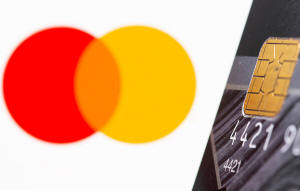Foreign credit card transactions add scarce dollars to Venezuela
circulation
 Send a link to a friend
Send a link to a friend
 [June 13, 2024] By
Mayela Armas [June 13, 2024] By
Mayela Armas
CARACAS (Reuters) - Transactions paid with foreign credit cards are
helping circulate more foreign currency in Venezuela, where the
government has locked in an exchange rate as part of efforts to control
double-digit inflation, four public sector and finance sources said.
The transactions have been growing steadily since the government of
President Nicolas Maduro, who is running for reelection in July,
loosened currency controls five years ago, allowing an expanded use of
U.S. dollars alongside the local bolivar currency.
When Venezuelans with bank accounts abroad use foreign cards, their bank
outside Venezuela sends the funds to its local intermediary bank in
dollars.
The local bank can then sell the dollars, adding to the limited supply
of foreign currency and helping the government to keep the exchange rate
at 36.4 bolivars to the dollar and control inflation, which was 59.2% in
the 12 months to May.
Maduro's government is seeking to raise its tax take so it will have
funds to direct toward public workers, sources told Reuters, as it seeks
to win their support at the polls.
"This foreign currency helps support the exchange market," said a public
sector source who asked not to be named.
About 11% of transactions at supermarkets, pharmacies and other
businesses are made with international cards, up from 8%last year, local
analyst Ecoanalitica said in March.
Some $60 million per month from transactions on foreign credit and debit
cards is sold by local banks, according to finance industry estimates.
Buyers are often retail or industrial businesses in need of foreign
currency to pay for imports.

[to top of second column] |

Credit card is seen in front of displayed Master Card logo in this
illustration taken, July 15, 2021. REUTERS/Dado Ruvic/Illustration

Other dollars come from the central bank and from export earnings
from Chevron, which operates in the country with a special license
from Washington. Both those sources contribute about $200 million
each per month, according to calculations from local analysts firm
Sintesis Financiera.
Although the dollars circulating via foreign card transactions was
less than from other sources, banking sources said the funds help
ease pressure on the market.
The central bank did not respond to a request for comment, nor did
the finance ministry.
In 2023, foreign exchange from international cards reached $900
million, according to banking sources.
U.S. sanctions have halted some international transfers, as the
central bank and some local banks were left without partner banks
that would allow them to move money in and out of Venezuela. Other
banks still have partners abroad.
U.S. sanctions are largely focused on members of Maduro's government
and the oil industry and do not restrict private Venezuelan
businesses from operating abroad.
Foreign cards "offer a bit of oxygen because many people can't
access bolivars," said economist Jesus Palacios, referring to credit
restrictions on bolivar-denominated credit cards.
(Reporting by Mayela Armas; Writing by Julia Symmes Cobb; Editing by
Bill Berkrot)
[© 2024 Thomson Reuters. All rights
reserved.]
This material may not be published,
broadcast, rewritten or redistributed.
Thompson Reuters is solely responsible for this content. |